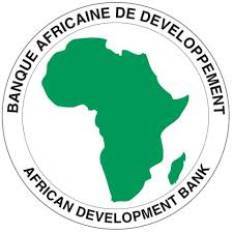ABIDJAN / Ivory Coast, 27 November 2024: The Board of Directors of the African Development Fund has approved initial funding of $99.16 million to develop regional rice cultivation value chains as part of the Regional West Africa Rice Development project.
The aim of the project is to increase food security and sovereignty in West Africa by encouraging public and private investments in rice value chains to increase self-sufficiency in rice in the region by 2030.
The funding of $99.16 million is intended for the first group of beneficiaries, which includes Gambia and Guinea-Bissau at the national level, as well as the Economic Community of West African States (ECOWAS) and the Africa Rice Center (AfricaRice) at the regional level. It will be provided in the form of separate grants of $15.95 million, $43.88 million and $19.94 million from the African Development Bank Group’s concessional loans window. A fourth grant from the Bank, of $19.39 million, will come from the Transition Support Facility, a Bank mechanism aimed at supporting the resilience of the continent’s most fragile countries.
In total, grants from the African Development Bank Group represent 91.2 percent of the total cost of the project. The governments of Gambia and Guinea-Bissau will each contribute 5.2 percent, with the beneficiaries contributing 1.7 percent in kind. ECOWAS and AfricaRice will contribute 1.2 percent and 0.8 percent of the total project cost respectively.
The project will help to increase production and the productivity of rice cultivation, as well as improving income generation for farmers, particularly women and young people. It will also help to increase the resilience and capacity for adaptation of rice farms and production systems in response to climate change, as well as processing, marketing and the intraregional trade in rice.
At the national level, the project plans to develop irrigation infrastructure and to improve the sustainability of irrigation services, support the distribution of supplies and improved, climate-smart seeds, and strengthen processing units and the marketing of local rice, with a particular emphasis on skills development and access to finance for women and young people. The project also aims to strengthen agricultural cooperatives and access to mechanization, while improving farmers’ capacity for adaptation and resilience in response to climate change and extreme events.
At the regional level, the first regional project, supported by AfricaRice, will provide regional technical support for encouraging innovation in rice cultivation value chains in the project’s intervention countries in West Africa. This includes a needs assessment for seeds and varieties in the various countries, as well as the production and distribution of improved seeds.
The second regional project, supported by ECOWAS, will concentrate on regional policy and regulatory reforms and harmonizing these across the region. It will contribute to improving governance in the West African rice sector through the ECOWAS Rice Observatory, which will also be supported by the project.
The project’s beneficiary countries are therefore all 15 countries in West Africa, each benefiting from the implementation of regional projects.
In Gambia, the beneficiaries will be 20,000 rice farmers, including 6,000 women and 4,000 young people; 10,000 producers, including 3,000 women and 3,000 young people who will be supported in accessing seeds, fertilizers, plant protection products, mechanization and agricultural equipment, and 40 women who will receive support for financial inclusion.
In Guinea-Bissau, 16,000 rice farmers, including 5,000 women and 3,000 young people will benefit, along with 50,000 producers, including 15,000 women and 15,000 young people, who will be supported in accessing seeds, fertilizers, plant protection products, mechanization and agricultural equipment.
Distributed by APO Group on behalf of African Development Bank Group (AfDB).























